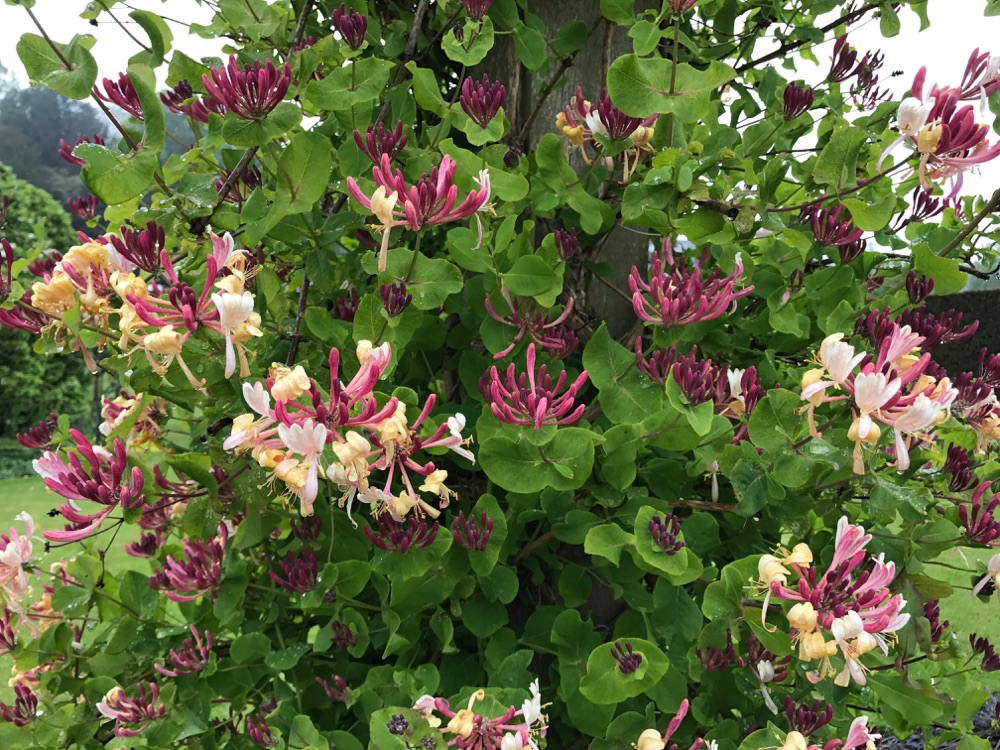I have been agonizing over what to do with a space in the garden that has become an eyesore since a large Clematis montana growing over a Viburnum Summer Snowflake collapsed and died over winter.
The viburnum had grown into a small tree and the clematis had scrambled into it and smothered it, creating a beautiful canopy of flowers in late-spring.

I knew the viburnum could not support the weight of the clematis for very long but I thought perhaps it would last a few more years. Sadly, no.
It collapsed under the weight of snow in winter and the clematis lay frozen on the ground for too long and succumbed to the cold and ice.
I have been waiting for weeks for the clematis to revive but, alas, no sign of recovery. It is as dead as a doornail.

I have been exploring my options. A friend suggested planting a fastigiate stewartia. I’m not convinced. I think it still might be too big for the space available.
When I was at Powis Castle in North Wales recently, I saw something that I think could be the answer to my problem.

At Powis, the gardeners have erected a series of 6-by-6 inch timber pillars and planted roses and honeysuckle and grapes around them to create compact pillars of flowers and foliage.
These pillars are at least 10 feet high which means they are probably 13-foot pieces with 3 feet embedded in the ground. They look very sturdy.

The gardeners planted two roses or two honeysuckles – one on each side of the post – and then carefully guided the growth upward and around the pillar to create a tight, compact tower. The repetition of this idea made it even more attractive.

To underscore the tower, they carved out a square and planted it densely with black mondo grass or pachysandra or oregano or variegated carex grasses.
To make it easier to attach the tendrils of the vines, each posts had some small metal staple-loops hammered into them at intervals for fastening ties.
I thought the idea was perfect for creating verticality in the garden as well as making the best use of a small space and also growing vines in a beautiful and compact way.
I’ll be giving it a whirl. First, to get the post.

















